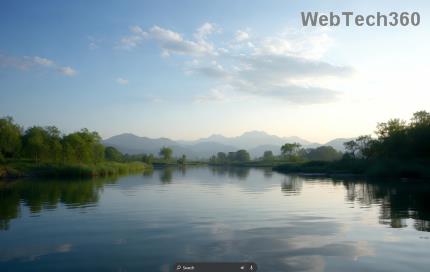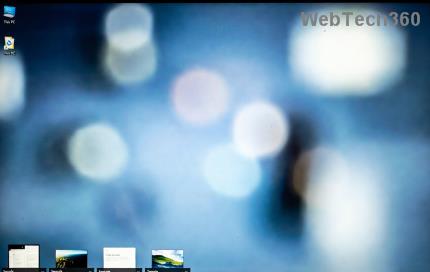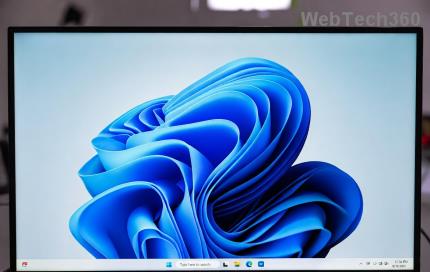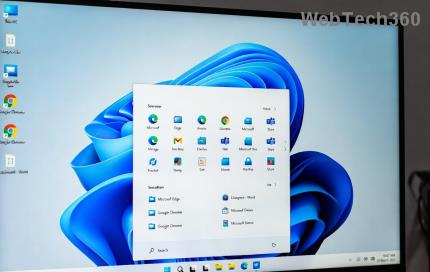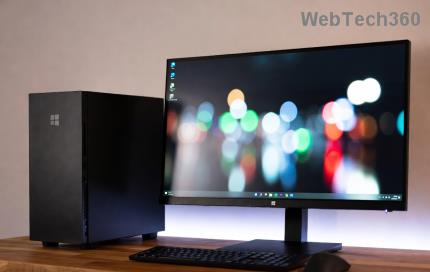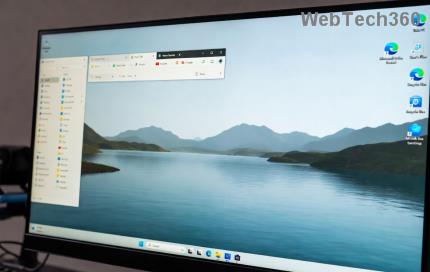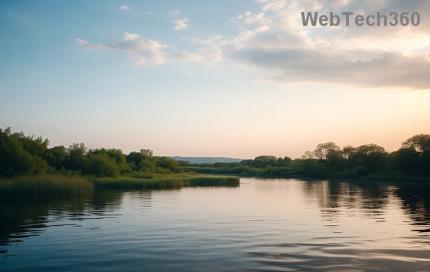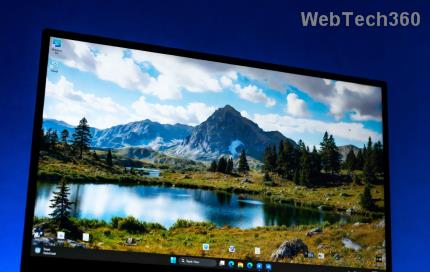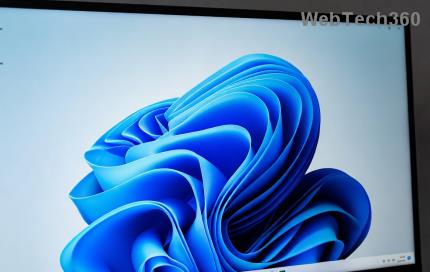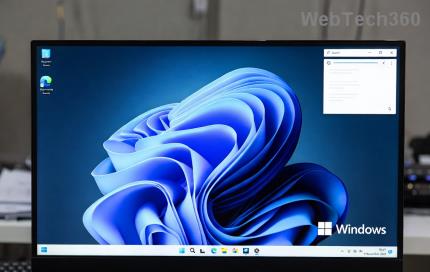Create digital paintings with Krita

Krita is a free and open source painting software popular among the world's top artists. Join us to learn about the process of popular digital painting on Krita.
Krita is not only a great digital painting software, but also helps you paint beautiful works. This article will show you some painting techniques when using Krita.
For comfortable painting, it's best to take advantage of Krita 's Layer Stack . It is one of the features that makes digital painting super convenient.
In traditional painting, it's not uncommon to draw a scene in front of a main subject or draw a line before coloring. Drawing pictures on the computer is similar.
In programming, if you ask the computer to draw the red circle, then the smaller yellow circle, you will see the yellow one overlap the red. In return, you will no longer see the yellow circle because it is drawn before red so it will be "behind" it. This is the basic "painting order".
Like traditional art, computers first draw pictures first, so that they can drill down into details, place objects and foreground on it. Layer docker is how you control the order of drawing multiple images. For example, you can draw lines after coloring to make them easier to adjust. In addition, Layer Stack can help you blend colors of different layers through Blending mode, apply filters or masks to create transparent parts.
Place a new layer below the painting layer (drag & drop or use the up / down arrows), then paint on it.

At first, you will not see any change due to the white color is not transparent. Want your work to really stand out? That's why we need to color the picture. Here are some methods of coloring pictures with Krita with different advantages and disadvantages.
Normally, if you want to paint in black and white, you can set the layer blending mode to Multiply. Do this by selecting the layer and going to the drop down menu, clicking Normal , and then selecting Multiply .

However, Multiply is not the perfect solution. For example, if you use some photo editing tools on paintings with blue strokes, you will get the following result:

This is because Krita applies true Multiply, literally "multiplying" colors.
First, it takes the RGB channel values, then divides them to the maximum. This process is called "standardization." Next, it multiplies the normalized values. Then take the result, then multiply it by 255 again to get the final value. Many artists apply this effect when they want to add a little "glow" to their colors.
| Pink | Standard pink | Green Blue | Standard blue | Standardized & multiplied | Result | |
| Red | 222 | 0.8705 | 92 | 0.3607 | 0.3139 | 80 |
| Green | 222 | 0.5647 | 176 | 0.6902 | 0.3897 | 99 |
| Green | 123 | 0.5647 | 215 | 0.8431 | 0.4066 | 103 |
Pros: Easy to implement, can be used even on colored lines by softening lines while preserving the necessary contrast.
Cons : The background is not completely transparent, only adding a bit of fun to the color lines.
The second method is to make it really transparent. In other software, you can do this via the Channel docker, but Krita doesn't allow customizing the channels. Instead, it uses Selection Masks to contain customization options.
1. Duplicate the layer that contains the painting.
2. Convert the copy into a selection mask layer. Click ![]() on the layer, then press Convert ‣ to Selection Mask .
on the layer, then press Convert ‣ to Selection Mask .

3. Invert the selection mask: Select ‣ Invert Selection .
4. Create a new layer and click Edit ‣ Fill with Foreground Color .

Pros : The background layer is really transparent.
Cons : Does not apply to colored works.
This is a simpler solution than the above.
1. Create a filled layer below the layer containing the painting.

2. Convert layer containing transparent layer painting: Click ![]() layer> Convert ‣ to Transparency Mask .
layer> Convert ‣ to Transparency Mask .

3. Invert the transparent mask by going to Filter ‣ Adjust ‣ Invert .

Pros : The background layer is really transparent. You can also freely draw textures on the overlay layer without overlaying the transparency.
Cons : Not applicable on colored lines.
This is the fastest way to clarify lines in a picture. Select the line art layer and apply color to the alpha filter: Filter ‣ Colors ‣ Color to Alpha . The default value is consistent with the line art picture.

Pros: The background is completely transparent. Apply well to painted line art because it specializes in whitening.
Cons : You must lock the transparent layer or separate alpha by right-clicking the menu if you want to color it easily.
There are many different ways to color a layer. For example, you can color everything manually. Despite its high accuracy, this method takes a lot of work. Instead, you can choose another solution.
In most cases, the Fill Tool cannot aliasing (soften edges in line art to make it smoother when zoomed in). Using Krita, you have two options for zooming in and out.
The threshold determines when the Fill tool uses a different color pixel as a border and uses Feather to add a soft border when painting.
Now, if you click on the part where there is no gap in the image with the color you want (remember 1.0 for opacity), depending on the line art, you can fill it quite quickly. However, setting a low threshold may generate small details around the intersection.

However, setting a high threshold may prevent you from recognizing some light colored lines. Meanwhile, you can completely erase that small strange detail easily with a brush.
Pros : Quick performance depending on available settings.
Cons : Not suitable for rich detailed paintings.

As the name implies, this way you will use the selection tool. For example, with the Path Selection Tool, you can select the curve area and with Shift+ ![]() (not
(not ![]() +
+ Shift). You can easily add to the current selection.

You can also edit the selection if the Select ‣ Show Global Selection Mask is enabled . Then select the whole overlay and paint over it. (The example above uses an alternate mode, enabled in the lower left corner of the status bar.)
When done, select the color you want to paint and press Shift+ spacebar.

You can save selections in Selections mask layers by clicking ![]() the layer, then Add Add Local Selection . First, you need to deactivate an option by clicking on the circle before adding a new option. You can use this method to separate different parts of an image, especially useful for professional painters.
the layer, then Add Add Local Selection . First, you need to deactivate an option by clicking on the circle before adding a new option. You can use this method to separate different parts of an image, especially useful for professional painters.

Pros: More accurate color gradation.
Cons: Color preview is not easy.
In Krita, you have a tool to create a rectangle or circle. It is a tool for bezier curves. Select the Path Tool and set the tool options to fill = foreground and outline = none. Make sure you set the opacity to 1.00 (complete blur).
By clicking and holding the mouse button, you can affect the curve drawn with the Path Tool. Use the mouse button to confirm the action, then you're free to draw the next point.

You can also use geometry tools to erase points by pressing Eor erasing button.

Pros : Faster than brushes or Selections, suitable for line art with gaps.
Cons : Not easy to fill the small details. In this case, you should use a brush to color them.
Follow these instructions to use Krita's Colorize Mask feature:

When you're satisfied, click ![]() on that color overlay and go to Convert ‣ Paint Layer . This will turn the adjustment layer mask into a layer. You can then fix the latest error by applying 1/2 transparency to the lines and filling the hole with a pixel brush.
on that color overlay and go to Convert ‣ Paint Layer . This will turn the adjustment layer mask into a layer. You can then fix the latest error by applying 1/2 transparency to the lines and filling the hole with a pixel brush.

Once done, split the layer to Layer ‣ Split ‣ Split Layer. Here, Krita offers a number of options, but just do as the picture looks good.

Finally, click OK . Each color applies on a different layer, named according to the palette in the menu and locked alpha. Thanks to that, you can draw immediately.

Advantages : Handling with line art works does not remove the teeth. Quickly complete basic painting jobs. Can automatically fill in gaps.
Cons : Not self-aliasing. You have to choose between getting the details right or automatically filling in the gaps.
Above is a guide to coloring pictures with Krita . Hope the article is helpful to you.
Krita is a free and open source painting software popular among the world's top artists. Join us to learn about the process of popular digital painting on Krita.
Krita is an excellent photo editing software, not inferior to Photoshop. This article will show you how to create clipping masks and inherit alpha channels in Krita.
Discover how to use Windows 11 Quick Assist for seamless remote support. Learn step-by-step setup, troubleshooting, and tips to help friends or family with tech issues instantly.
Struggling with dual monitor lag on Windows 11? Discover proven troubleshooting fixes to eliminate stuttering, delays, and performance issues for seamless multi-monitor setups. Step-by-step guide inside.
Struggling with the frustrating Windows 11 "Startup Settings" blank error? Discover proven, step-by-step fixes to restore your boot options quickly and get your PC running smoothly again. No tech expertise needed!
Discover how to activate Windows 11 Enterprise using KMS effortlessly. This comprehensive guide covers everything from requirements to troubleshooting, ensuring seamless activation for your business needs.
Struggling with the dreaded KMODE EXCEPTION NOT HANDLED error on Windows 11? Discover proven, step-by-step fixes to resolve this blue screen nightmare quickly and get your PC running smoothly again. No tech expertise needed!
Struggling with Windows 11 "Motherboard" Driver Error? Discover proven troubleshooting steps to fix it fast and get your PC running smoothly again. Easy, step-by-step guide for beginners.
Struggling with ping spikes on Windows 11 over Wi-Fi? Discover proven fixes to stabilize your connection, reduce lag, and enjoy smooth gaming or streaming. Step-by-step solutions for instant results.
Accidentally deleted precious photos? Discover proven methods to recover deleted photos in Windows 11 effortlessly. Step-by-step guides, tools, and tips to restore your images safely.
Discover how to use Windows 11 Terminal instead of CMD for a modern, efficient command-line interface. Learn installation, setup, and tips to boost your productivity with tabs, themes, and more.
Discover safe, legitimate ways to activate Windows 11 Pro without a product key. Learn step-by-step methods using built-in tools and official Microsoft options to get your OS up and running smoothly. No risks, no hassle – just pure productivity.
Struggling with battery drain during hibernate in Windows 11? Discover expert fixes to preserve your laptop
Struggling with input lag in Windows 11 while playing Valorant or CS2? Discover proven, step-by-step fixes to restore smooth gameplay and boost your performance. Say goodbye to delays and hello to precision shots.
Struggling with the frustrating "Out of Memory" error in Microsoft Edge? Discover proven, step-by-step fixes to reclaim your browsing speed and stability. Updated with the latest tips for optimal performance.
Struggling with Google Drive not launching on Windows 11? Discover proven fixes to resolve the issue fast, from restarts to advanced troubleshooting. Get your cloud storage working seamlessly today!
Discover how to disable Game Bar Presence Writer on Windows to optimize gaming performance. Step-by-step guide to reduce lag, boost FPS, and enhance your setup for smoother gameplay. Essential tips for gamers in 2026.

